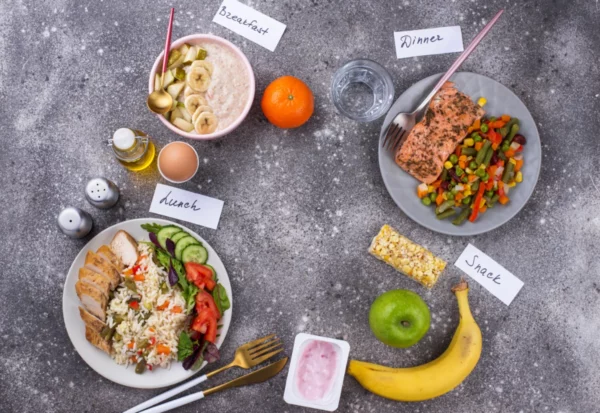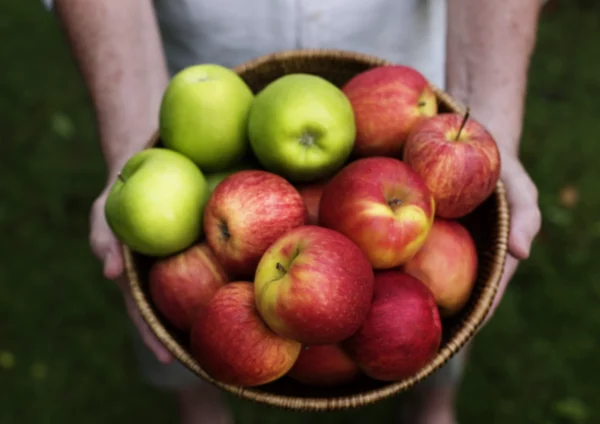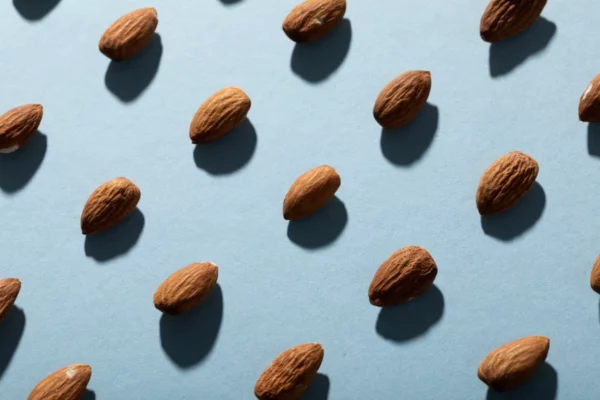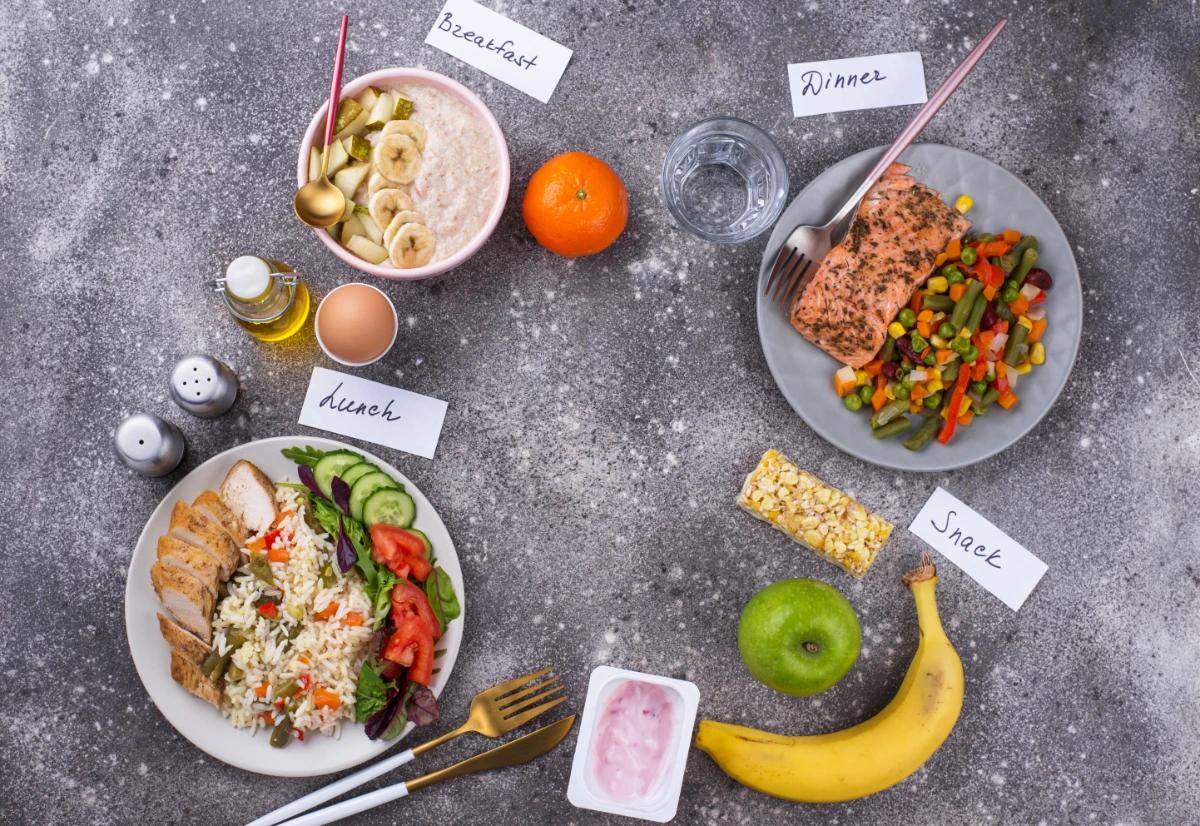A high-fiber diet offers numerous health benefits, including improved digestion, better weight management, and reduced risk of chronic diseases like heart disease and type 2 diabetes. However, fiber can sometimes affect the absorption of certain vitamins and minerals, raising the question of whether multivitamins are necessary to support optimal nutrient intake. In this article, we’ll explore how multivitamins complement a high-fiber diet, the potential nutrient gaps to be aware of, and practical tips for balancing the two.
Key Takeaways
| Aspect | Details |
| Fiber Interference | High fiber may reduce absorption of minerals like calcium, zinc, and iron. |
| Vitamins Affected | Fat-soluble vitamins (A, D, E, K) may pass through the digestive system more quickly with high fiber intake. |
| Multivitamin Benefit | Provides a safety net for essential vitamins and minerals that may be compromised. |
| Best Practices | Take multivitamins with meals, separate from high-fiber foods for optimal absorption. |
| Diet Compatibility | Suitable for vegans, gluten-free, Whole30, and most dietary plans. |
How High-Fiber Diets Affect Nutrient Absorption
Dietary fiber, especially insoluble fiber, accelerates digestion and helps move food through the intestines faster. While this process is great for preventing constipation and promoting gut health, it can also interfere with the absorption of certain nutrients:
- Calcium, Zinc, and Iron: High fiber intake, especially from grains containing phytates, can bind to these minerals, reducing their absorption.
- Fat-Soluble Vitamins (A, D, E, K): Fiber-rich foods may speed up digestion, meaning these vitamins might not be fully absorbed before elimination.
Additionally, individuals following very high-fiber diets may inadvertently lower their intake of certain essential micronutrients by crowding out other nutrient-dense foods.
High-fiber diets can decrease hunger and increase satiety leading to weight loss.
Multivitamins: A Safety Net for Nutrient Balance
Taking a multivitamin ensures that you are getting essential vitamins and minerals, even if some nutrients are not fully absorbed from food. A multivitamin is particularly useful for people with high-fiber diets because it:
- Fills in Nutritional Gaps: Covers any shortfall in essential vitamins and minerals affected by fiber intake.
- Supports Energy and Metabolism: Vitamins like B-complex and magnesium help convert food into energy and maintain metabolic functions.
- Boosts Immune Health: Vitamin C, zinc, and iron strengthen immune function, which can be compromised with suboptimal mineral absorption.
Who Should Consider Multivitamins?
- Vegans/Vegetarians: Plant-based diets often contain higher fiber and lower amounts of certain vitamins like B12 and iron.
- Individuals with Digestive Issues: Conditions like IBS or ulcerative colitis might reduce nutrient absorption.
- Athletes or Active Individuals: Increased energy demands require optimal nutrient intake, which may be compromised on a high-fiber diet.
How to Take Multivitamins with a High-Fiber Diet
To maximize the benefits of both fiber and multivitamins, follow these best practices:
- Separate High-Fiber Foods from Supplements: Take your multivitamin 2-3 hours after consuming a high-fiber meal to reduce nutrient competition.
- Consume with Healthy Fats: Fat-soluble vitamins (A, D, E, K) are better absorbed when taken with meals containing healthy fats like avocado or olive oil.
- Stay Hydrated: Drinking water aids digestion and nutrient absorption.
- Monitor Iron Levels: If your multivitamin contains iron, avoid taking it with coffee, tea, or high-calcium foods since these can inhibit iron absorption.
Nutritional Benefits of Multivitamins for High-Fiber Diets
A good multivitamin will provide the following key nutrients to complement your high-fiber intake:
- Vitamin A: Supports eye health and immune function.
- Vitamin D: Essential for calcium absorption and bone health.
- Vitamin E: Acts as an antioxidant to protect cells from damage.
- B Vitamins (B1, B6, B12): Help with energy production and nervous system function.
- Magnesium: Aids in muscle function and prevents constipation.
- Iron & Zinc: Critical for oxygen transport and immune health.
Diet Compatibility and Allergens
- Vegan and Vegetarian: Many multivitamins are available in vegan formulations (look for options without gelatin or animal-derived ingredients).
- Gluten-Free: Suitable for those with gluten sensitivities or celiac disease.
- Whole30: Multivitamins are allowed, as long as they are free from sugars and additives.
- Low-FODMAP: Most multivitamins are compatible, though it’s essential to check for certain sugar alcohols like sorbitol.
- SCD Diet (Specific Carbohydrate Diet): Be cautious with fillers—choose pure supplements without starches or additives.
Culinary Tips: Combining Multivitamins and Fiber-Rich Foods
There’s no need to avoid high-fiber foods entirely to get the benefits of your multivitamin. Here are some ideas for balancing the two:
- Smoothie Bowls: Add fiber-rich chia seeds or oats but take your multivitamin separately with a nut butter toast.
- Salad with Healthy Fats: Top with avocados or olive oil dressing for better absorption of vitamins.
- Overnight Oats: Include fiber-rich toppings like berries but take your supplements after breakfast.
FAQs
1. Can fiber block the absorption of all vitamins?
Fiber doesn’t block all vitamins but may reduce the absorption of fat-soluble vitamins and some minerals like calcium and iron.
2. Should I take multivitamins if I eat a high-fiber diet?
Yes, especially if you have concerns about missing out on key nutrients like iron or fat-soluble vitamins.
3. What’s the best time to take multivitamins?
With meals containing healthy fats for better absorption of fat-soluble vitamins. Avoid taking them immediately after a high-fiber meal.
4. Are multivitamins safe for people with digestive issues?
Yes, they can help address nutrient gaps caused by malabsorption issues common with conditions like IBS.
5. Do fiber supplements interfere with multivitamins?
Yes, it’s best to space them out by a few hours to avoid nutrient competition.
6. Is there a specific multivitamin for high-fiber diets?
No specific type, but look for comprehensive formulas with minerals like iron, magnesium, and zinc.
7. Can I take multivitamins every day?
Yes, daily use is generally safe, but follow the recommended dosage to avoid toxicity.
8. How can I tell if I need a multivitamin?
If you experience fatigue, brittle nails, or slow wound healing, you may be deficient in key vitamins or minerals.
9. Are gummy vitamins effective?
Gummy vitamins can help, but they may lack certain nutrients and often contain sugars—check the label carefully.
10. Can children on high-fiber diets take multivitamins?
Yes, but choose age-appropriate formulations with the correct nutrient levels for children.
Conclusion
Incorporating a multivitamin into a high-fiber diet ensures that your body receives all the essential nutrients it needs, even if fiber affects the absorption of certain minerals or vitamins. By timing your supplement intake wisely and eating balanced meals with healthy fats, you can enjoy the benefits of both fiber and multivitamins without compromising your nutritional needs.








